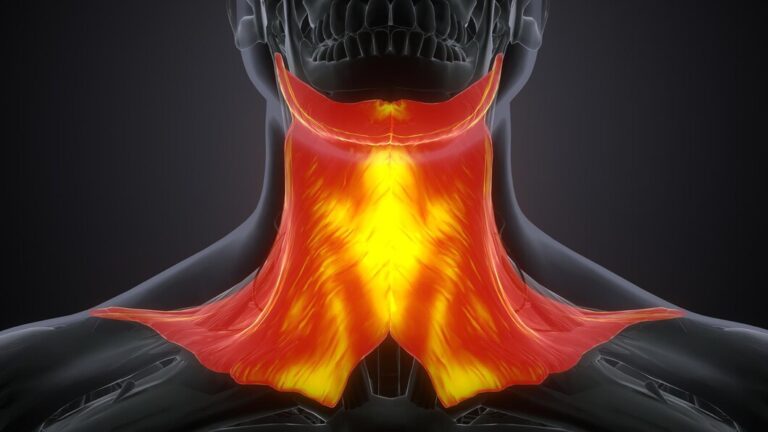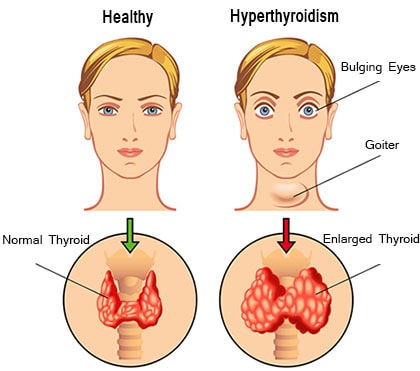Future Trends In Thyroiditis Treatment: Research And Innovations
Thyroiditis, inflammation of the thyroid gland, is a condition that affects millions of individuals worldwide. As medical science continues to advance, researchers and healthcare professionals are exploring innovative approaches to improve the diagnosis, management, and treatment of thyroiditis. This article delves into the future trends in thyroiditis treatment, highlighting the latest research and innovative therapies that hold promise for transforming the landscape of thyroid disease management.
Precision Medicine in Thyroiditis
One of the most significant advancements in healthcare is the shift towards precision medicine. This approach tailors treatment plans to individual characteristics, including genetic makeup, lifestyle, and environmental factors. In the context of thyroiditis, precision medicine holds immense potential. Researchers are unraveling the genetic underpinnings of thyroid disorders, paving the way for personalized treatment strategies that target specific molecular pathways.
Immunotherapy for Autoimmune Thyroiditis
Autoimmune thyroiditis, including Hashimoto’s thyroiditis, is a common form of thyroid inflammation characterized by the body’s immune system attacking the thyroid gland. Emerging research is exploring the potential of immunotherapy in modulating the immune response to prevent or treat autoimmune thyroiditis. This includes the development of targeted therapies to suppress the autoimmune response, ultimately preserving thyroid function.
Nanotechnology in Drug Delivery
Nanotechnology is revolutionizing drug delivery systems, offering precise and targeted administration of therapeutic agents. In thyroiditis treatment, nanocarriers can be engineered to deliver drugs directly to the affected thyroid tissue, minimizing side effects and enhancing the efficacy of medications. This innovative approach could transform the way medications are delivered, improving patient outcomes and quality of life.
Biomarkers for Early Detection
Early detection of thyroiditis is crucial for effective management and prevention of complications. Ongoing research is focused on identifying reliable biomarkers that can indicate the presence of thyroid inflammation at its earliest stages. These biomarkers may include specific proteins, genetic markers, or imaging techniques that enable healthcare professionals to diagnose thyroiditis before significant damage occurs, allowing for timely intervention.
Gene Editing Technologies
Advancements in gene editing technologies, such as CRISPR-Cas9, present exciting possibilities for treating thyroid disorders at the genetic level. Researchers are exploring the feasibility of using gene editing to correct or modify specific genetic mutations associated with thyroiditis, offering a potential cure for certain forms of the disease. While still in the early stages, the prospect of gene editing in thyroiditis treatment raises optimism for long-term therapeutic solutions.
Telemedicine and Remote Monitoring
The integration of telemedicine and remote monitoring technologies is reshaping healthcare delivery, making it more accessible and patient-centric. In thyroiditis management, telemedicine allows for regular remote monitoring of thyroid function, medication adherence, and overall patient well-being. This trend not only enhances patient convenience but also facilitates timely adjustments to treatment plans based on real-time data, improving overall disease management.
Stem Cell Therapy for Thyroid Regeneration
Stem cell therapy holds promise for regenerating damaged tissues, including the thyroid gland. Researchers are investigating the use of stem cells to repair and regenerate thyroid tissue in cases of thyroiditis-induced damage. This novel approach aims to restore normal thyroid function and could provide an alternative or complementary treatment option for individuals with irreversible thyroid damage.
Artificial Intelligence in Diagnostic Imaging
The application of artificial intelligence (AI) in diagnostic imaging is transforming the accuracy and efficiency of thyroiditis diagnosis. AI algorithms can analyze medical images, such as ultrasound or MRI scans, with remarkable precision, aiding healthcare professionals in identifying subtle abnormalities indicative of thyroid inflammation. This not only expedites the diagnostic process but also reduces the risk of misdiagnosis.
Diet and Lifestyle Interventions
Holistic approaches to thyroiditis treatment are gaining recognition, with a growing emphasis on the role of diet and lifestyle in managing the condition. Researchers are exploring the impact of specific dietary interventions, such as gluten-free or anti-inflammatory diets, in mitigating autoimmune responses associated with thyroiditis. Lifestyle modifications, including stress management and regular exercise, are also being investigated for their potential to positively influence thyroid health.
Patient-Centered Care and Shared Decision-Making
Future trends in thyroiditis treatment extend beyond scientific and technological innovations to encompass a shift toward patient-centered care. Recognizing the importance of involving patients in their treatment decisions, healthcare providers are embracing shared decision-making approaches. This collaborative model ensures that patients are active participants in choosing treatment options that align with their preferences, values, and lifestyle.
Conclusion
The future of thyroiditis treatment is characterized by a dynamic interplay of scientific breakthroughs, technological advancements, and patient-centered care. From precision medicine and immunotherapy to nanotechnology and gene editing, researchers are exploring a diverse range of innovative approaches to enhance the diagnosis and management of thyroiditis. As these trends continue to unfold, the outlook for individuals with thyroid disorders becomes increasingly optimistic, promising more effective, personalized, and accessible treatment options. The integration of these advancements into clinical practice has the potential to revolutionize the field of thyroiditis treatment, offering hope for improved outcomes and a better quality of life for affected individuals.








